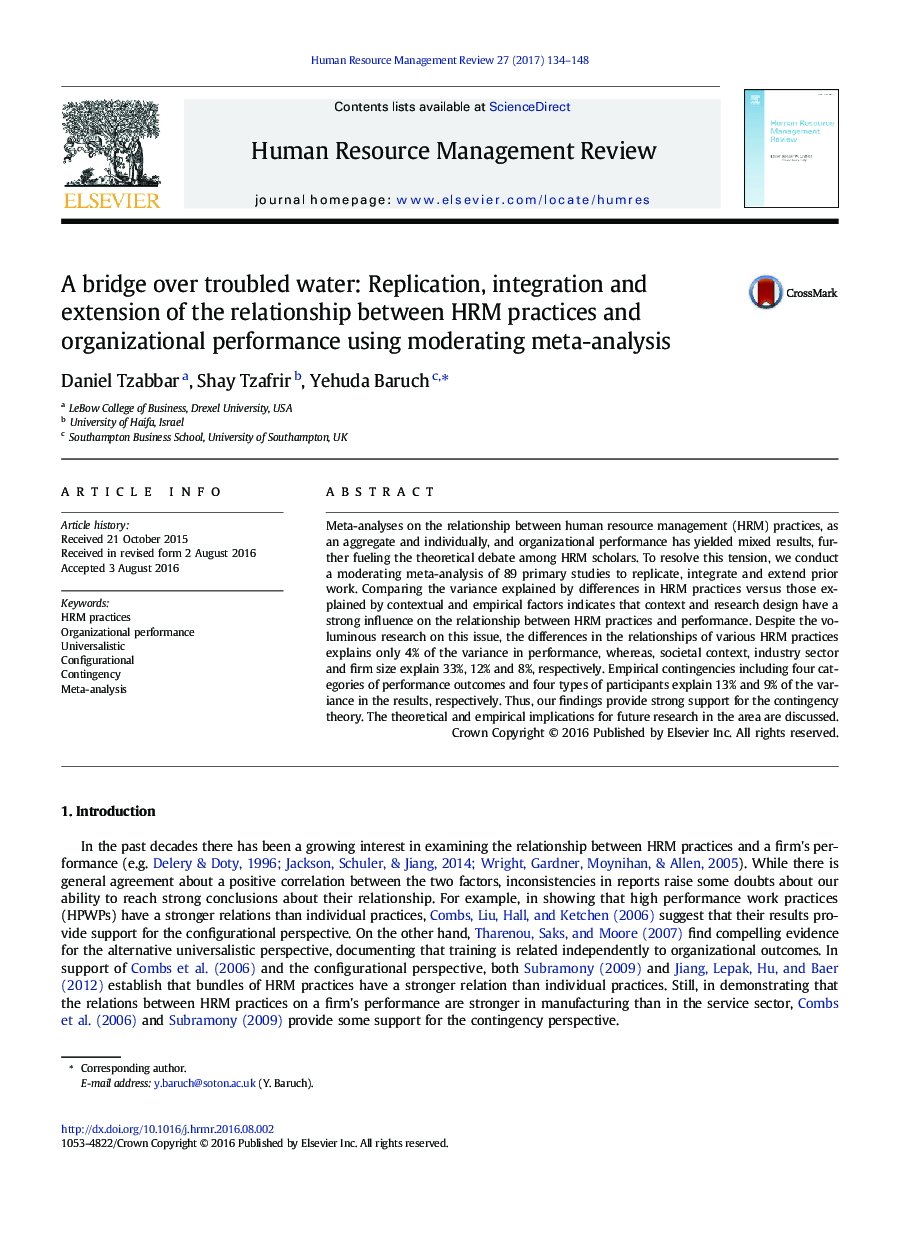| Article ID | Journal | Published Year | Pages | File Type |
|---|---|---|---|---|
| 5033649 | Human Resource Management Review | 2017 | 15 Pages |
â¢Meta-analyses on the relationship between human resource management (HRM) practices has yielded mixed results, further fueling the theoretical debate among HRM scholars.â¢To resolve this tension, we conduct a moderating meta-analysis of 89 primary studies to replicate, integrate and extend prior work.â¢Comparing the variance explained by differences in HRM practices versus those explained by contextual and empirical factors indicates that various HRM practices explains only 4% of the variance in performance, whereas, societal context, industry sector and firm size explain 33%, 12% and 8%, respectively.â¢Furthermore, differences between executive, middle management, HR managers and employees explain 9% of the variance while differences in the type of performance outcome explain 13%.â¢The theoretical and empirical implications for future research in the area are discussed.
Meta-analyses on the relationship between human resource management (HRM) practices, as an aggregate and individually, and organizational performance has yielded mixed results, further fueling the theoretical debate among HRM scholars. To resolve this tension, we conduct a moderating meta-analysis of 89 primary studies to replicate, integrate and extend prior work. Comparing the variance explained by differences in HRM practices versus those explained by contextual and empirical factors indicates that context and research design have a strong influence on the relationship between HRM practices and performance. Despite the voluminous research on this issue, the differences in the relationships of various HRM practices explains only 4% of the variance in performance, whereas, societal context, industry sector and firm size explain 33%, 12% and 8%, respectively. Empirical contingencies including four categories of performance outcomes and four types of participants explain 13% and 9% of the variance in the results, respectively. Thus, our findings provide strong support for the contingency theory. The theoretical and empirical implications for future research in the area are discussed.
